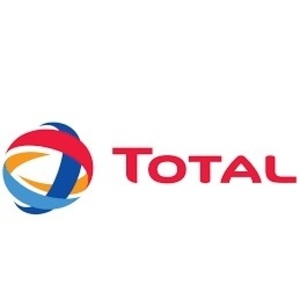Total begins producing sustainable aviation fuel in France

April 12, 2021
BY Total
Total has begun producing sustainable aviation fuel (SAF) at its La Mède biorefinery in southern France and its Oudalle facility near Le Havre. The biojet fuel, made from used cooking oil, will be delivered to French airports starting in April 2021.
Total will also be able to produce SAF as from 2024 at its zero-crude Grandpuits platform, southeast of Paris.
All of these sustainable aviation fuels will be made from animal fat, used cooking oil and other waste and residue sourced from the circular economy. Total will not use vegetable oils as feedstock.
Advertisement
Advertisement
In this way, Total will be in a position to respond from its production sites in France to new French legislation that calls for aircraft to use at least 1 percent biojet fuel by 2022, 2 perent by 2025 and 5 percent by 2030.
The development of SAF is one of the strategic paths being pursued by Total to meet the challenge of carbon neutrality, as biojet fuels help reduce CO2 emissions from air transportation.
“By producing sustainable aviation fuel at our French sites today, we are able to respond to strong demand from an aviation industry looking to reduce its carbon footprint, while adapting our industrial resources. As a broad energy company, we support our customers by providing innovative solutions to reduce their emissions. This commitment is fully aligned with Total’s climate ambition to get to net zero emissions by 2050,” said Bernard Pinatel, president of refining and chemicals at Total.
Total and sustainable aviation fuel
Total is involved in numerous initiatives to produce and market sustainable aviation fuel in partnership with aviation industry partners. The Group will reach a new milestone in May 2021 with the creation of a dedicated renewable fuels business unit.
Advertisement
Advertisement
Sustainable Aviation Fuel is a practical alternative to fossil-based jet fuel. It significantly reduces the CO2 emissions from air transportation and can be used as a drop-in fuel as of today, without any need to modify existing supply chain infrastructure, aircraft or engines.
Related Stories
Calumet Inc. on Aug. 8 confirmed its Montana Renewables biorefinery is currently running at full capacity. An initial phase of the company’s MaxSAF initiative remains on track to boost SAF capacity to up to 150 MMgy by mid-2026.
Marathon Petroleum Corp. on Aug. 5 released second quarter financial results, reporting improved EBITDA for its renewable diesel segment. The company primarily attributed the improvement to increased utilization and higher margins.
Chevron Corp. on Aug. 1 confirmed the company started production at the Geismar renewable diesel plant in Louisiana during the second quarter after completing work to expand plant capacity from 7,000 to 22,000 barrels per day.
The public comment period on the U.S. EPA’s proposed rule to set 2026 and 2027 RFS RVOs and revise RFS regulations closed Aug. 8. Biofuel groups have largely expressed support for the proposal but also outlined several ways to improve the rulemaking.
In celebration of World Biodiesel Day, MOL Group on Aug. 8 announced SAF was successfully produced for the first time at INA’s Rijeka Refinery during a pilot project to process biocomponent. Renewable diesel was also produced.
Upcoming Events










